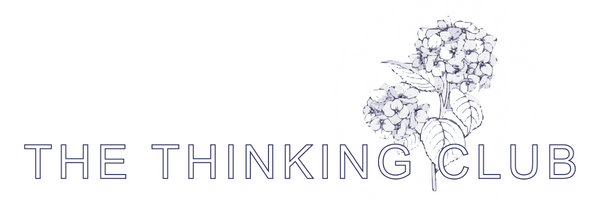
Women's Community Project: Broadsheet Article
Share



Covid-19 has many businesses thinking creatively about how they can respond to the crisis. And two Antipodean companies have added a charitable element to their operations, reimagining themselves in the global pandemic.
Hayley McFadden runs The Thinking Club, a small brand-management studio in Sydney that specialises in bringing the work of small, design-focused makers to the market. Her first client was Stansborough, a family-owned New Zealand wool farm and mill that makes textiles from one of the rarest sheep in the world: the Stansborough grey. The wool of a Stansborough grey has a strong fibre that occurs naturally in three shades of grey. Once shorn, Stansborough workers hand-separate the fleece into these colours, and weave the fibres completely undyed. The brand has worked with bed linen and homewares label In Bed; supplied wool to fashion labels Karen Walker and Lee Matthews; and made clothing worn by characters in Middle Earth and Narnia.
When McFadden and Cheryl Eldridge (who owns and runs Stansborough with her husband, Barry) heard news reports that, with women and children forced to stay home with abusive partners during Covid, incidents of domestic violence had increased, and more women would be looking for a safe place to flee to, they decided to do something.
“Cheryl and I had talked multiple times about doing a charity project,” says McFadden. “So when Covid happened, and we’d been discussing how domestic violence was going up, we thought we’d design a range and donate profits to Women’s Refuge in New Zealand and, because I’m based in Sydney, give a percentage to Women’s Community Shelters here.”
That range is a blanket and a throw, both hand-woven to order on looms from the 1890s, using Stansborough wool in its signature greys, with a yellow stripe. “The pale grey and the dark grey stripe is 100 per cent natural. And the gold is eco-dyed [coloured with plant-based dyes],” says McFadden. “We could have done all the greys but we wanted to introduce a colour for a brighter, more positive outlook.” Fifty dollars from every sale will go to one of the two charities.
The brushed-wool blanket is 2.4 metres x 2 metres (big enough for a king-size bed). The throw is 1.4 metres x 1.8 metres and made with a lighter-weight yarn. McFadden says it’s good for the couch or to wear as a shawl. Some have been wearing it as an oversized scarf.
“The blanket is super fluffy and airy,” says McFadden (nothing like heavy boiled-wool blankets). “They’re light and the brushed wool it’s made from is one of Stansborough’s most popular types.” The throw is light but warm and just as soft.
Women’s Community Shelters is based in NSW and works with communities to set up their own short-term emergency accommodation and support (health care, counselling, legal help, education, employment) for women and children. It says domestic and family violence is the leading preventable cause of death and injury for women between the ages of 15 and 44. Every day, more than one in three women is turned away from crisis accommodation due to a lack of space – and that’s during non-Covid times. Domestic Violence NSW interim chief executive Delia Donovan told the Guardian in June that during crises – such as recessions, natural disasters and pandemics – domestic violence surges.
An Australian Institute of Criminology survey published on July 13 shows more than 50 per cent of the women surveyed had experienced more frequent and more severe abuse in the home since the beginning of the pandemic. And “two-thirds of women who had experienced physical or sexual violence by a current or former cohabiting partner since the start of the Covid-19 pandemic said the violence had started or escalated” in that time. Almost one in 10 Australian women in a relationship have experienced domestic violence during the coronavirus crisis.
This is reflected in the numbers of people seeking help.
Women’s Safety NSW told the ABC in June that during the outbreak, support services have reported a 56 per cent increase in requests for help.
This Collection is sold through Things by AITCH.
